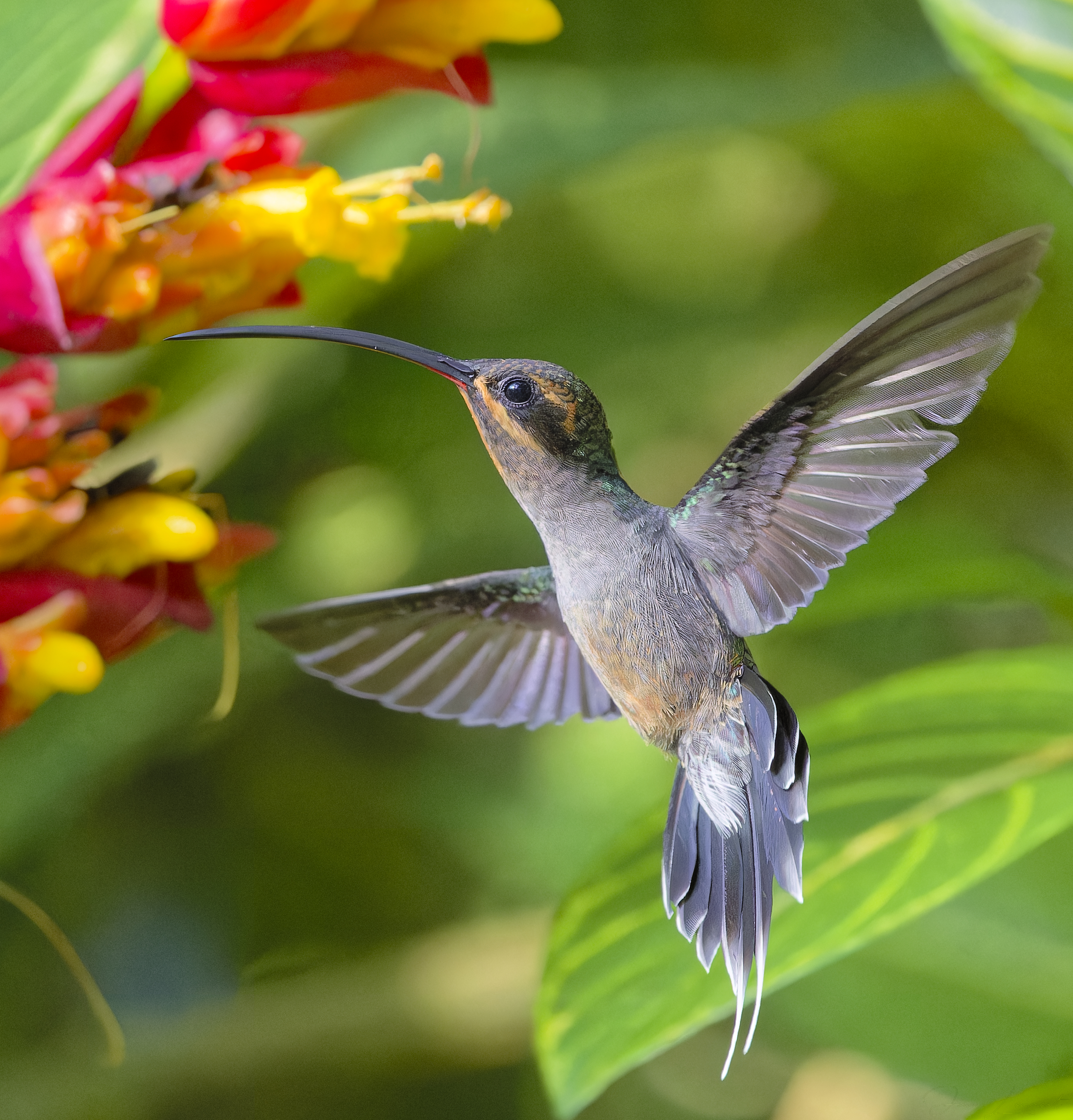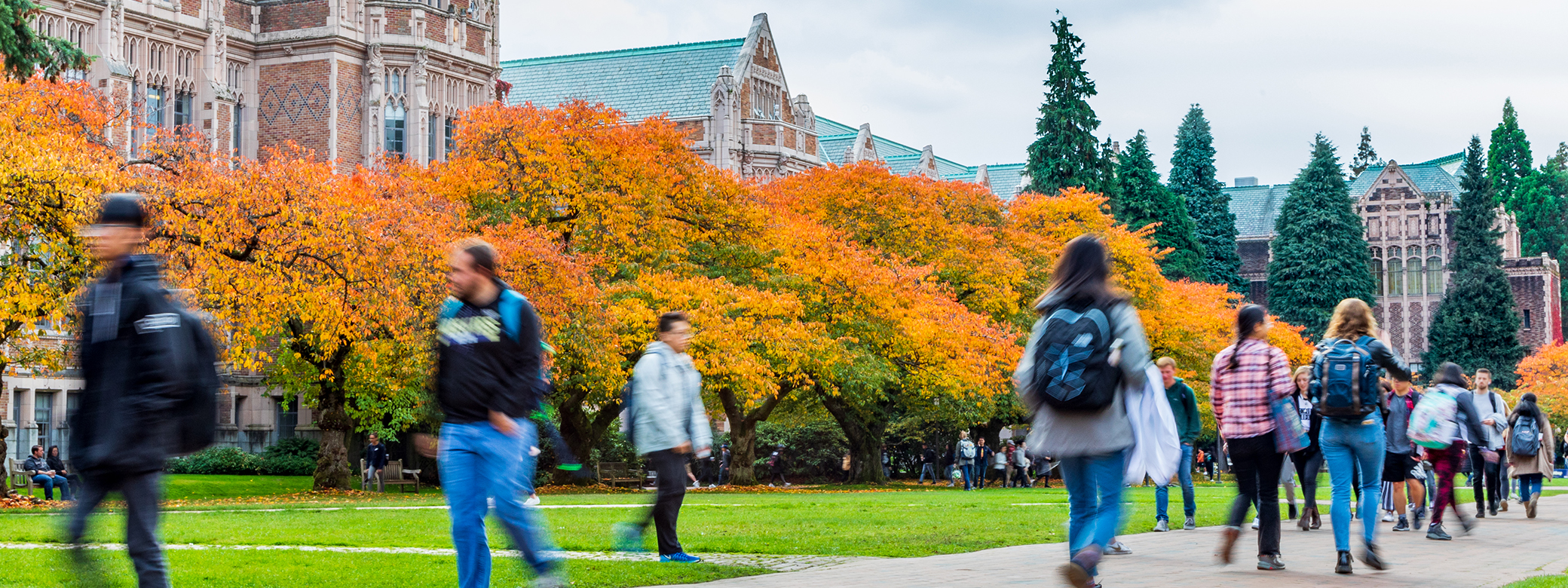-
KUOW Board of Directors welcomes six new members
KUOW is thrilled to welcome six new members, including Andrea Woody, professor of philosophy at the UW, to the KUOW Puget Sound Public Radio Board of Directors.11/24/2025 | KUOW -
Washington has the pieces for a quantum ecosystem now the state needs a game plan and money
Theres a quantum paradox in Washington. The state has strong ingredients for a quantum technology hub: powerful giants like Microsoft and Amazon, a hardware leader in IonQ, and world-class research at UW and PNNL. Yet it may be falling behind states like Illinois, Montana and Colorado that are pushing forward on quantum. Charles Marcus, professor of materials science and engineering and of physics, is quoted.11/23/2025 | GeekWire -

Sharper, straighter, stiffer, stronger: Male green hermit hummingbirds have bills evolved for fighting
The green hermit hummingbird, which lives primarily in mountain forests of Central and South America, fights to win a mate. New research found that these fights have shaped the species evolution, yielding significant differences in bill shape for male and female green hermits.
11/21/2025 | UW News -
Bodies remember what archives erase: Scholars confront Indonesias 60-year silence on genocide
Sixty years after one of the 20th centurys worst atrocities, three scholars gathered at the UW to confront a question that is still connected to Indonesia: What does it mean to commemorate a genocide? Nazry Bahrawi, assistant professor of Asian languages & literature at the UW, is quoted.11/21/2025 | Northwest Asian Weekly -
Sedro-Woolley English teachers bring AI literacy into the classroom
Several English classes at Sedro-Woolley High School are implementing lesson plans designed by Linsey Kitchens to help students understand the limitations of artificial intelligence programs such as ChatGPT. The UW's Carl Bergstrom, professor of biology, and Jevin West, professor in the Information School, are mentioned.11/20/2025 | Salish Current -
Makah Tribes treaty-protected whaling rights remain blocked more than two decades later
Despite the Makah Tribes success in getting a waiver to carry out their exclusive treaty right for whaling, the permitting process that had dragged on for over 20 years has now been effectively delayedanother year and a half because of bogged-down federal bureaucracy. Joshua Reid, associate professor of history and of American Indian studies at the UW, is quoted.11/20/2025 | Indian Country Today -
Providence Swedish layoffs are the latest in a wave of job cuts sweeping Puget Sound hospitals
Several major hospital systems across the Puget Sound region are cutting hundreds of jobs, a wave of reductions that experts warn could soon lead to longer waits, fewer available services, and growing pressure on families seeking medical care.Anirban Basu, professor of health economics at the UW, is quoted.11/20/2025 | KING 5 -
![First Look: Spirit House & Charlene Liu [Event documentation, Henry Art Gallery, University of Washington, Seattle. 2025]. Photo: Robert Wade](/sites/default/files/2025-10/web_article_image_family_weekend_2025_henry_art_gallery.png)
The Perks of Being a UW Student
Opportunities on campus and in the community that are free or discounted for UW students.
11/19/2025 | College of Arts & Sciences -
Common PNW fish, uncommon feature: teeth on its forehead
Earlier this year, researchers at the University of Washington published a paper in the Proceedings of the National Academy of Sciences on the spotted ratfish, sometimes called a ghost shark.Karly Cohen, a postdoctoral researcher at the UW's Friday Harbor Labs, is interviewed.11/19/2025 | KUOW -
Elderly Asian Americans learn to protect themselves as crime, scams hit Seattle’s Chinatown-International District
UW Professor Connie So and interns in the Department of American Ethnic Studies take part in launching an educational campaign to support elderly Asian Americans in protecting themselves from crime and scams.
11/17/2025 | Northwest Asian Weekly
